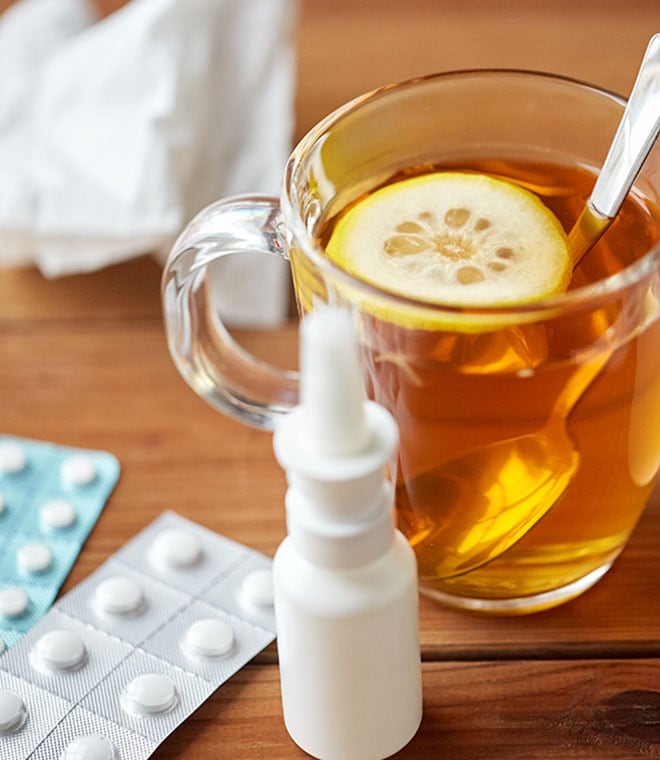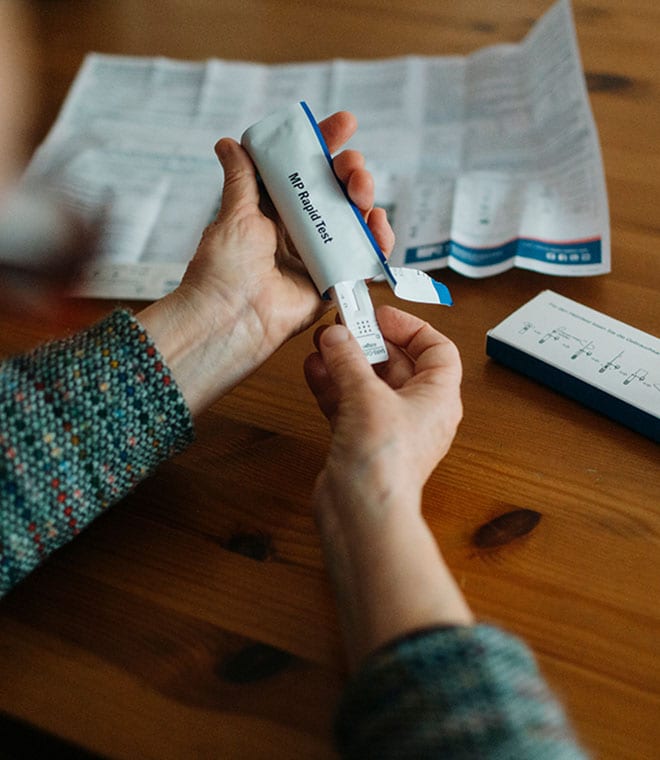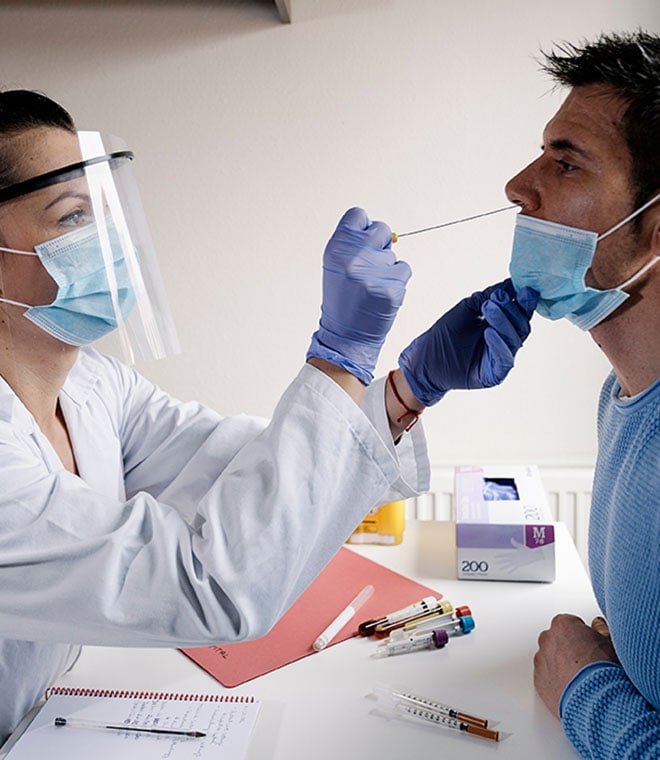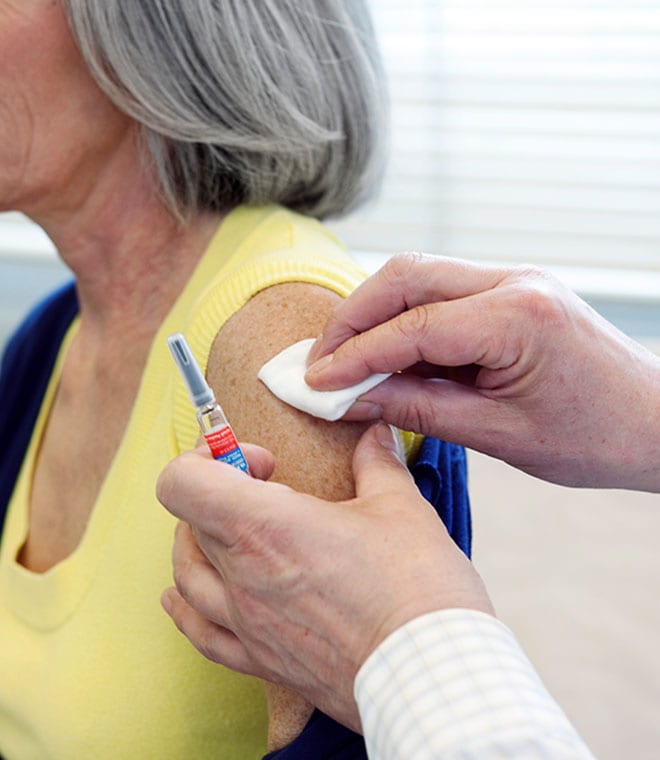Health
How to recover from a cold
By Dennis Galvon, MD May 28, 2024 • 10 min
The common cold is a very common respiratory infection. In fact, most adults develop two or three colds per year. Knowing what to do when cold symptoms strike can help you feel better while you recover.
What is a cold?
Caused by more than 200 viruses, colds are infections of the upper respiratory system, made up of the nose, sinuses, trachea and throat. Rhinoviruses cause the majority of colds, but other types of viruses, such as coronaviruses, can also lead to colds.
Tips for recovering from a cold
The common cold does not have a cure. However, you can usually ease symptoms with over-the-counter cold medications and support recovery through self-care. If your symptoms become worse, you should seek medical care.
Cold Medicine
Over-the-counter cold medications aren’t a cure for the common cold, but they can relieve symptoms so that you can rest more comfortably. As a result, they’re only necessary if your symptoms are making you uncomfortable or disrupting your activities.
Cold medicines available over the counter include:
- Decongestants: Drugs like pseudoephedrine, oxymetazoline and phenylephrine can help ease nasal and sinus congestion by reducing swelling in the nose and nasal passages. Decongestants come in liquid, pill and nasal spray forms.
- Pain relievers: Acetaminophen and nonsteroidal anti-inflammatory drugs (NSAIDs), like ibuprofen and naproxen, can reduce fevers and relieve headaches and body aches.
- Antihistamines: Medications like diphenhydramine may ease sneezing and a runny nose. Some nighttime cold medications contain an antihistamine to promote drowsiness and help you sleep.
- Cough suppressants: Antitussive medicines, like dextromethorphan, alleviate coughing by suppressing the body’s cough reflex. These medications are typically not recommended for children under age 5.
- Expectorants: The medication guaifenesin helps loosen congestion by thinning mucus.
In addition to stand-alone, single-ingredient medications, you can find combination cold medicines that contain multiple active ingredients to relieve a range of symptoms.
Although you can purchase cold medicines without a prescription, some drugs may be unsafe for people with certain medical conditions or who take certain medications. It’s best to consult your healthcare provider before taking any over-the-counter medication for the first time.
Follow the directions for use printed on the medication packaging unless your healthcare provider gives you other advice.
Common cold self-care
Practicing self-care can help aid in recovery when you develop a cold. Consider the following tips:
- Get plenty of rest: Resting will allow your body to heal more efficiently.
- Drink fluids: Water, juice, lemon water and broth can help you stay hydrated when you have a fever and work to thin mucus. Warm fluids, such as hot teas and broth, may be more beneficial.
- Avoid getting chilled outdoors. Although viruses — not cold weather — cause colds, cold weather may make symptoms worse.
- Soothe a sore throat: Gargling with warm salt water, sucking on ice chips or using lozenges can help ease throat soreness.
- Use honey: Honey is one of the more effective home remedies for cold symptoms, and it may temporarily alleviate coughing. Take a spoonful on its own or mix it into warm water or tea. Avoid giving honey to children under age 1.
- Moisturize the air: Running a cool mist humidifier or vaporizer may help reduce congestion.
- Try saline: Saline nasal sprays, drops and rinses can alleviate nasal and sinus congestion by thinning mucus.
- Avoid dehydration: Avoid drinking alcohol or caffeinated beverages, which can cause dehydration and worsen symptoms.
- Don’t smoke: Quitting or cutting back on smoking can help reduce irritation and aid in the healing process. Ask your healthcare provider if you can use nicotine replacement products to curb cravings while recovering from a cold.
How to get rid of a cold faster
Many people tout the benefits of various home remedies and supplements, such as zinc, vitamin C and echinacea. Some claim these alternative remedies can prevent colds or shorten their duration. However, there isn’t enough scientific evidence to prove that any supplement or home remedy is effective at helping people get rid of colds faster.
How long does a cold last?
Colds typically last for about 7 to 10 days. However, individuals can potentially spread a cold for up to 14 days because it’s possible to be contagious before you begin showing symptoms. People with a weakened immune system or a respiratory condition like asthma may take longer to recover from a cold.
What are the common cold stages?
Common colds typically go through three stages:
- Stage 1 (Days 1 to 3): A tickling or scratchy throat may occur. Some people may experience other symptoms, such as mild sneezing, nasal congestion, hoarseness and coughing.
- Stage 2 (Days 4 to 6): Symptoms of a cold typically peak during Stage 2. In addition to Stage 1 symptoms, you may also develop a headache, body aches, a runny nose and fatigue. Fevers may occur during this stage, but it’s more common in children than adults.
- Stage 3 (Days 7 to 10): Symptoms decrease during the last stage of a cold. In some cases, a cough may persist for up to two months after all other cold symptoms resolve.
Keep in mind that colds may progress more quickly or slowly in some people. The information outlined above is based on averages, so your own experience may be different.
Signs your cold is getting better
You’ll know that your cold is getting better when your symptoms begin to subside and any fever goes away and doesn’t return for 24 hours. Keep in mind that coughing may continue for some time after recovery, especially if you have respiratory problems, such as asthma.
When to see your healthcare provider
If you develop any of the following symptoms, see your healthcare provider:
- Fever above 101.3 degrees Fahrenheit that lasts for more than three days in adults or fevers that last for more than two days in children
- Wheezing
- Symptoms that begin to improve but then return within a couple of days
- Shortness of breath
- Chest pain
- Severe headache or sore throat
- Any symptoms that don’t resolve within about 10 days
Even if you don’t have any of the above symptoms, you may still want to check in with your healthcare provider for more advice on how to care for yourself when recovering from a cold.
How do you catch a cold?
Colds are highly contagious and spread easily from person to person. When someone has a cold, droplets containing the virus can enter the air and settle onto surfaces. If you breathe in the droplets, you may catch a cold. You can also contract a cold from touching a contaminated surface and then introducing the virus to your eyes, nose or mouth.
Colds are most common during the colder months of the year, largely because people spend more time indoors, increasing the risk of spreading germs. Additionally, breathing cold air in through your nose reduces the protection from the mucous layer.
To reduce the risk of catching a cold or sharing your cold with others, follow these tips:
- Wash your hands frequently with soap and water
- Regularly clean commonly touched surfaces, like taps, light switches, remote controls and electronic devices
- Avoid close contact with people who are sick
- Stay home from work or school until you feel better
- Cover your mouth with the inside of your elbow when you sneeze or cough
- Avoid touching your nose, mouth, eyes and face
- Wear a mask in public to prevent spreading viruses to other people when you are sick
Updated May 2024.
Sources:
- https://www.mayoclinic.org/diseases-conditions/common-cold/in-depth/cold-remedies/art-20046403
- https://my.clevelandclinic.org/health/diseases/12342-common-cold
- https://www.hopkinsmedicine.org/health/conditions-and-diseases/common-cold
- https://www.mayoclinic.org/diseases-conditions/common-cold/symptoms-causes/syc-20351605
- https://www.cdc.gov/antibiotic-use/colds.html
- https://familydoctor.org/cough-medicine-understanding-your-otc-options/
- https://familydoctor.org/decongestants-otc-relief-for-congestion/
- https://www.lung.org/lung-health-diseases/lung-disease-lookup/facts-about-the-common-cold
- https://my.clevelandclinic.org/health/drugs/24923-nasal-decongestant
- https://www.hopkinsmedicine.org/health/wellness-and-prevention/the-dos-and-donts-of-easing-cold-symptoms
- https://www.jacionline.org/article/S0091-6749(22)01423-3/fulltext
- https://health.clevelandclinic.org/honey-for-sore-throat-and-cough
- https://www.lung.org/blog/respiratory-virus-season-prevention



